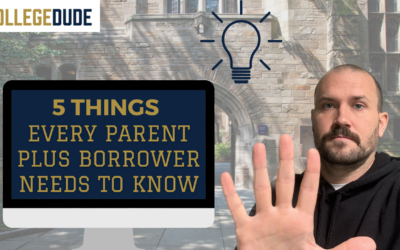Can financial aid be used for rent? It’s a good question, and there are some complexities to it. In this post, we’ll look at these complexities and provide you with everything you need to know about using financial aid to pay for rent. That said, it’s important to define a couple of components of the question.
What is considered financial aid?
To understand what expenses can be covered from financial aid, it’s important to start with the definition of financial aid. Simple put, financial aid is money that is provided to students to help them pay for the cost of attending college. This typically includes grants, scholarships (the free money), work-study programs, and loans (money that has to be paid back or worked for).
Grants and scholarships are often awarded based on financial need or academic merit. Work-study programs provide students with part-time jobs on campus to help them earn money to pay for college. Loans must be repaid, and can either be public or private.
The type of financial aid you receive and how it is disbursed can vary depending on your individual circumstances and the school you attend.
Can financial aid be used for rent?
The short answer is yes, financial aid can be used for rent. However, there are some important caveats to keep in mind.
First and foremost, financial aid is intended to help you pay for the cost of attending college. This means that any expenses you incur that are not directly related to your education may not be covered by financial aid. This can include things like car payments, credit card bills, or other personal expenses.
However, the cost of housing is considered to be a legitimate education-related expense. This means that financial aid can be used to cover the cost of rent if you are living off-campus.
If you are living on-campus, your financial aid may be applied directly to your housing expenses. This can include rent, utilities, and other associated costs. However, if you are living off-campus, your financial aid may be used to cover rent and other living expenses up to the amount of the school’s estimated cost of attendance.
It’s important to note that your school’s estimated cost of attendance is not just the cost of tuition and fees. It also includes things like books, supplies, transportation, and living expenses. This means that you can use financial aid to cover rent and other living expenses up to a certain amount, as long as you have enough aid to cover both your educational expenses and your living expenses.
Can 529 withdrawals be used to pay rent?
Yes. You are able to pay rent with a 529 plan. There are a couple of stipulations that are important to keep in mind, primarily if you’re living off campus. The beneficiary of the plan must be enrolled in a eligible college program at least part-time. It’s important to note that if a parents owns the house or condo the child is living in, the parent cannot pay the mortgage from the 529 plan, but the parent can charge rent to the child.
Oftentimes, a landlord will charge a college student and you’ll need to make sure you keep record of any distributions you take. In the event of an IRS audit, tracking your expenses and withdrawals is paramount. You can also use things like utilities and groceries to cover this as well. But there are limits.
Specifically, you cannot use funds to cover an excess of a) room and board allowance is listed in the college’s official cost of attendance or b) the actual invoiced cost of room and board if the student is living in housing that is owned or operated by the college. Therefore, it’s essential to make sure you know what these two costs are, and not to exceed this!
Conclusion
So, can financial aid be used for rent? Yes. It can get complicated if the student is living off campus, but it is allowed. It’s important to make sure you know the full cost of attendance at the university, and not to exceed that amount. If you ever feel unsure, it’s recommended you discuss with the financial aid office at the university.






